By Lorenzo and Pilón
We’d always had in our minds traveling to Vietnam. Its culture, people, landscapes and the ease of finding a bike to ride around the country, made this trip really appealing. But what really triggered us were pictures our friends Lucía and Pixi (responsible for “Perder el Rumbo” and both bike lovers) had sent us the year before, when they traveled around south-east Asia. Their pictures showed several motorbikes that had been absolutely transformed to make them suitable for forest and agricultural work in the jungle – the Jungle Men. That made our interest in the trip to grow, and for a year we planned our vacation to find those machines, their riders, and the mechanics who devised them.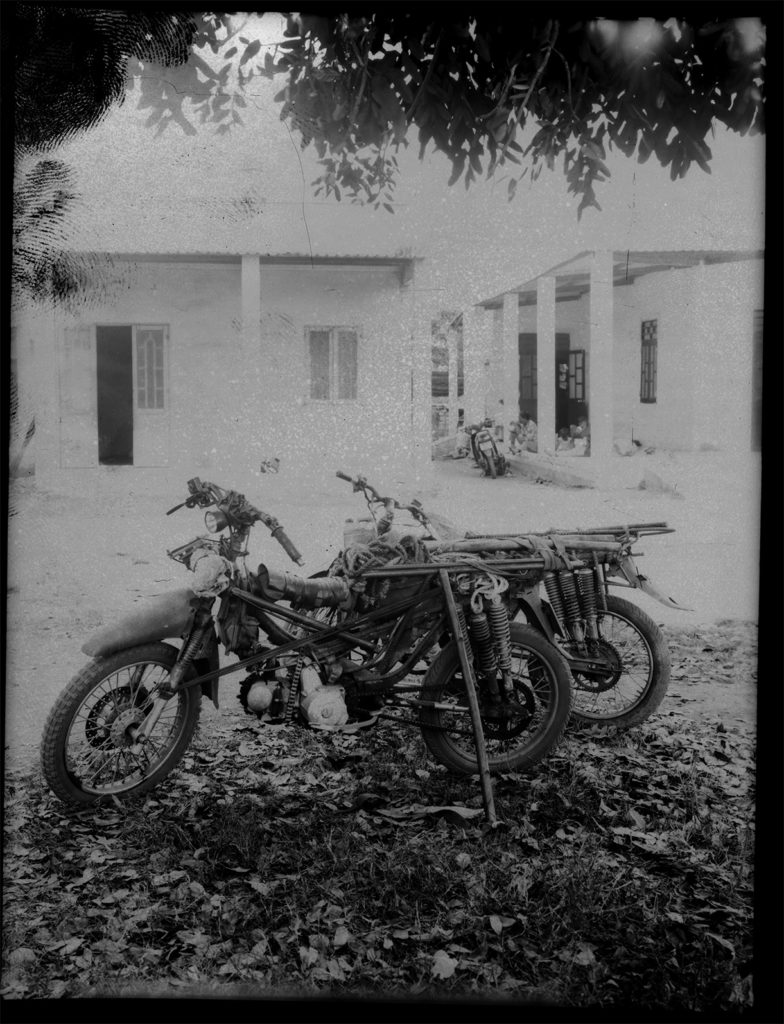
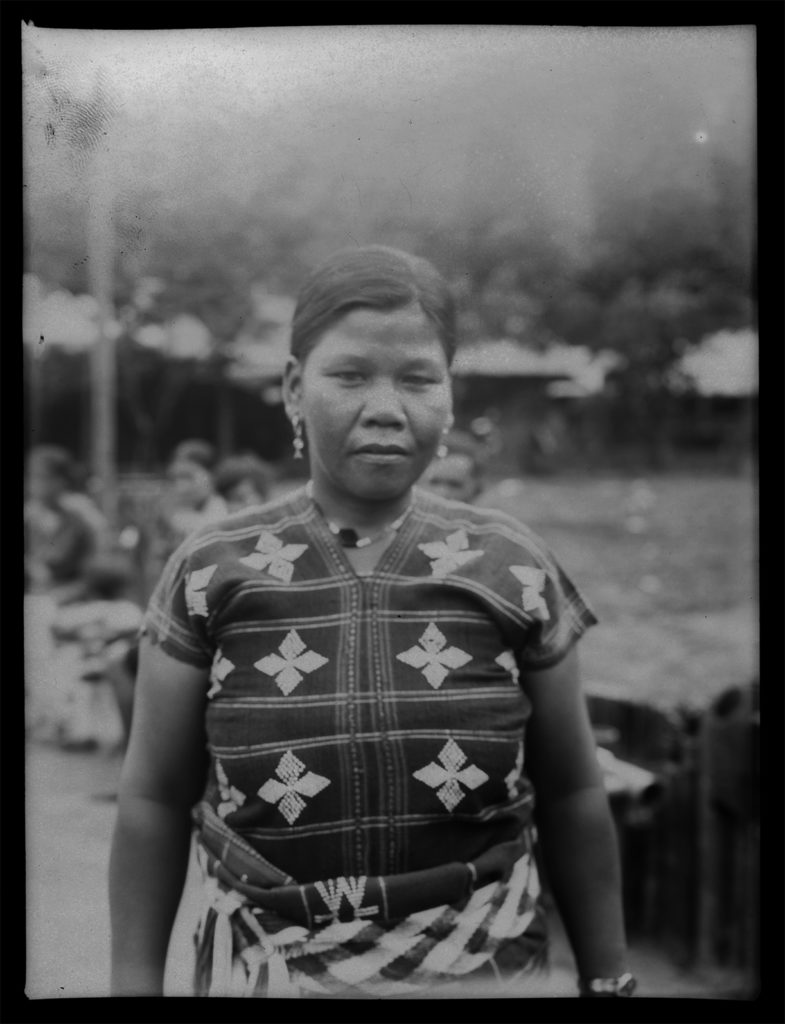
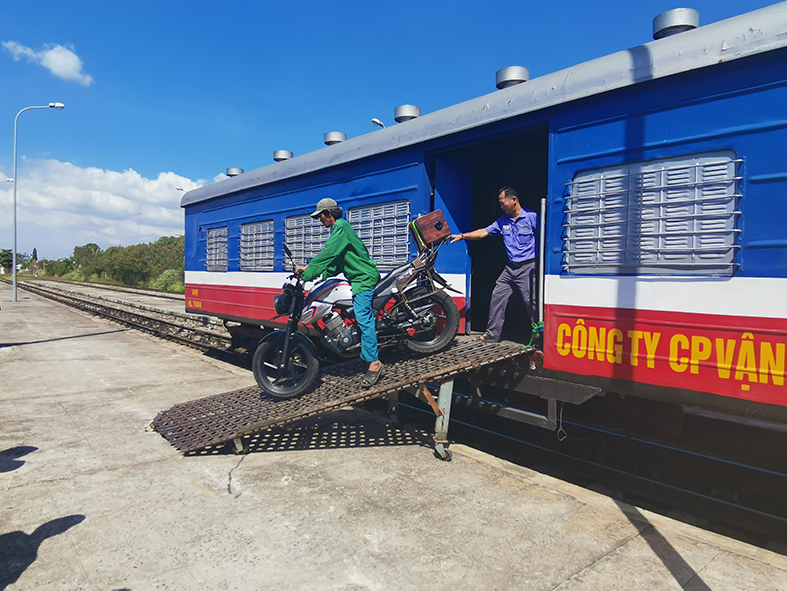
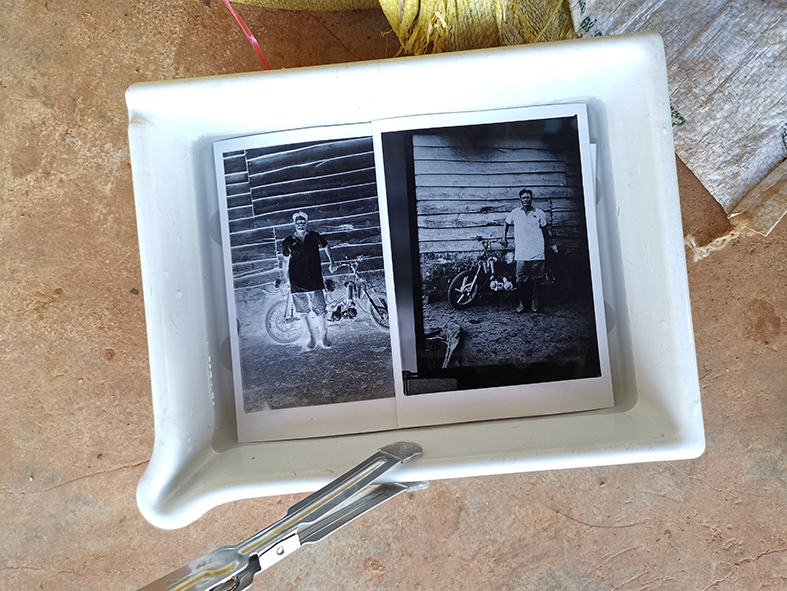
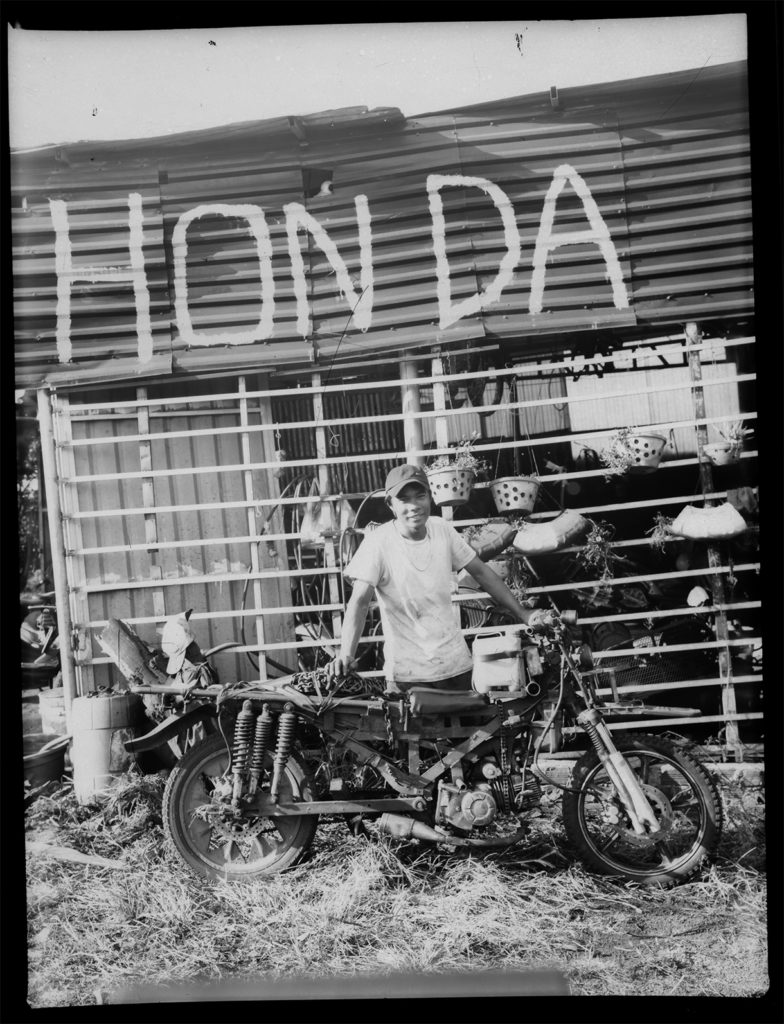
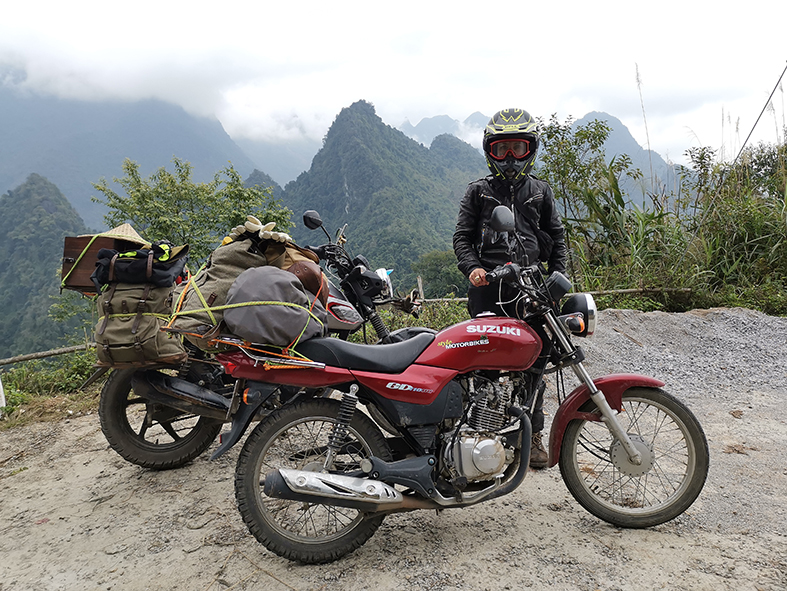
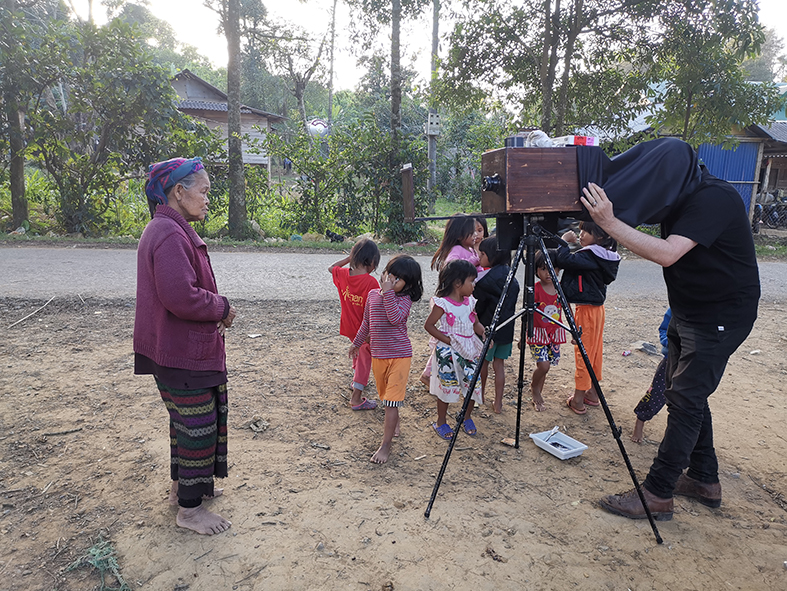
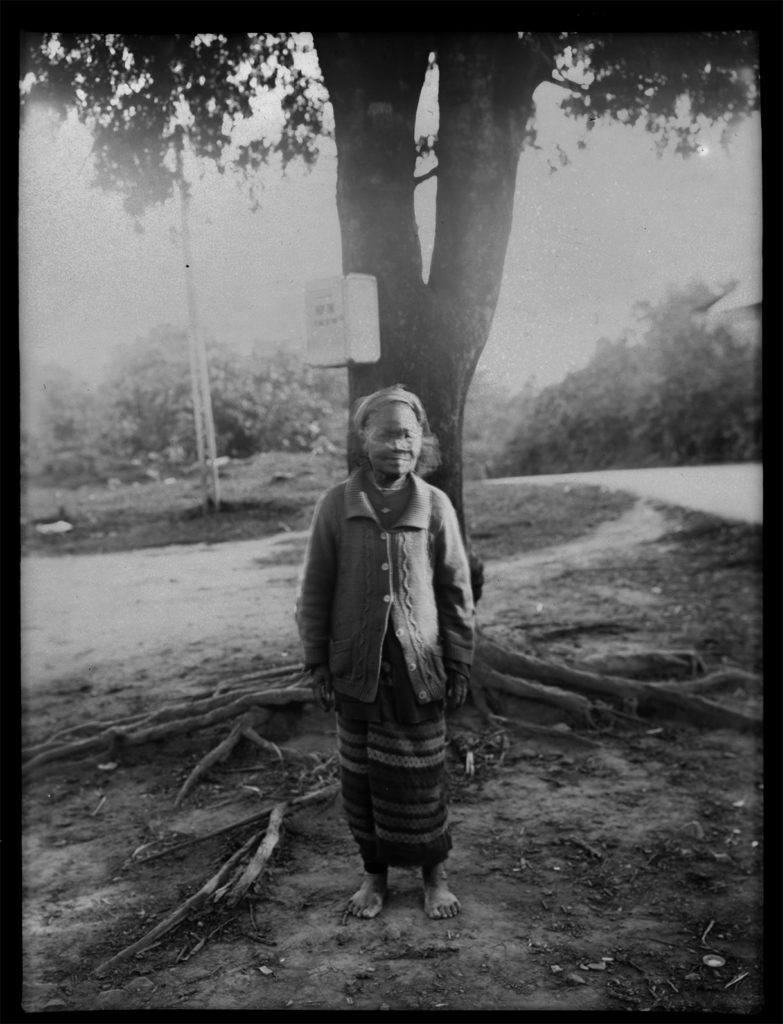
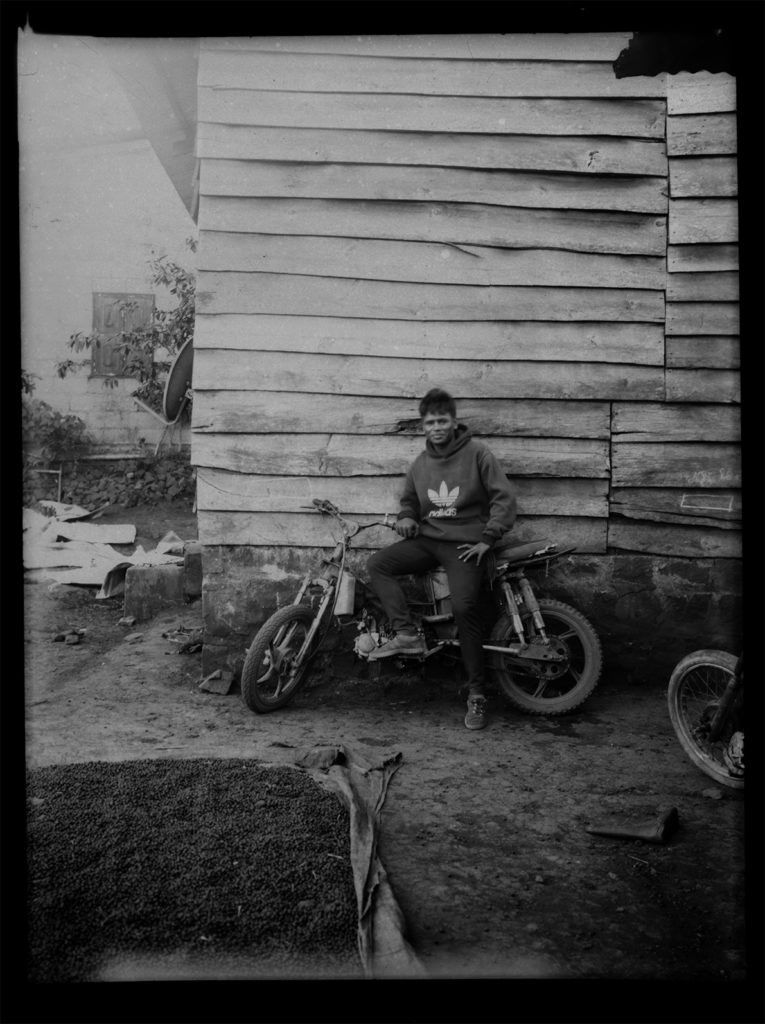
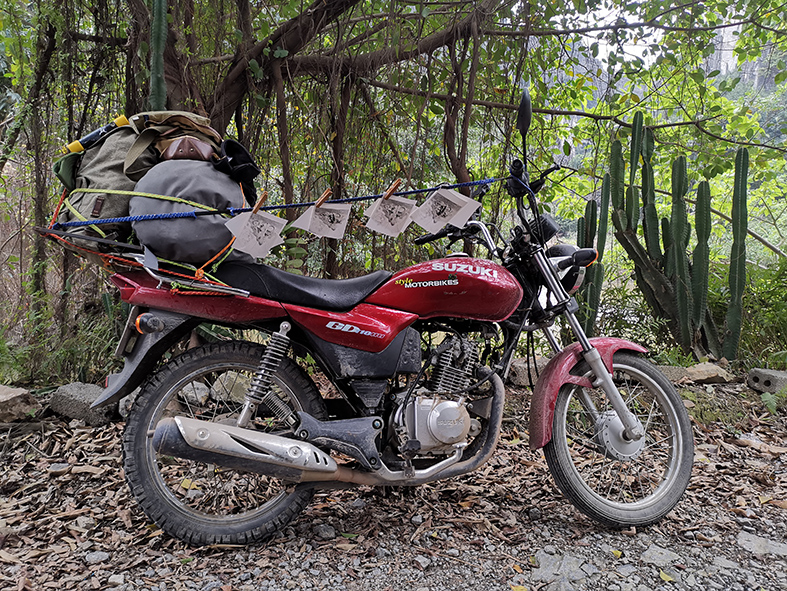
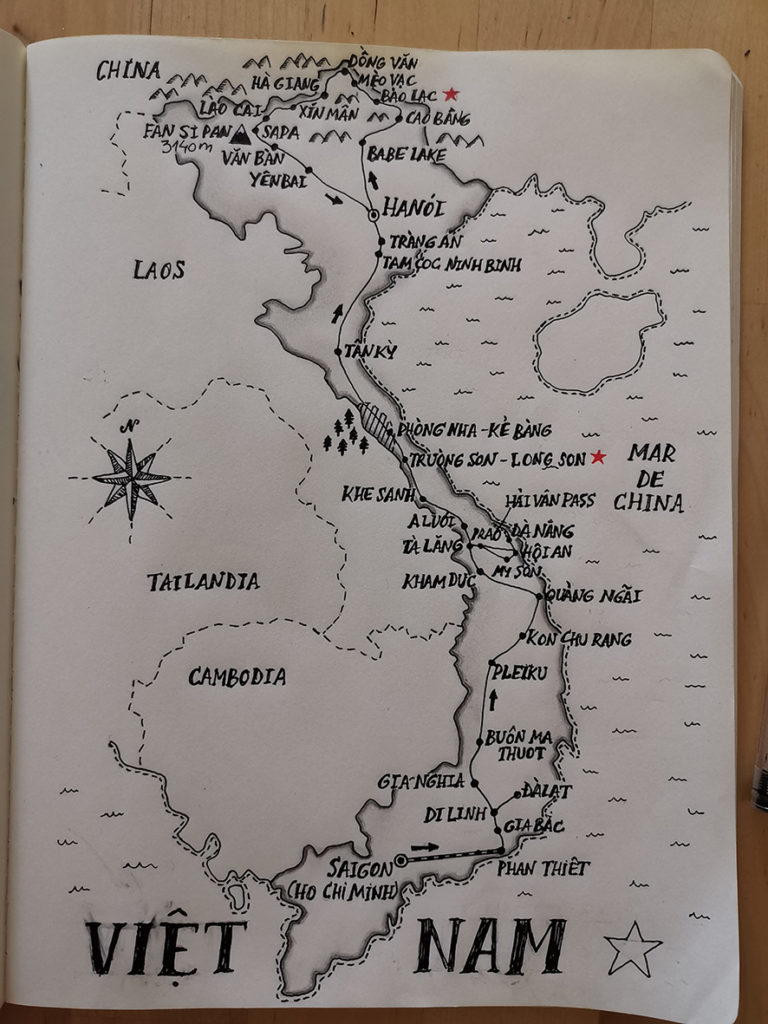
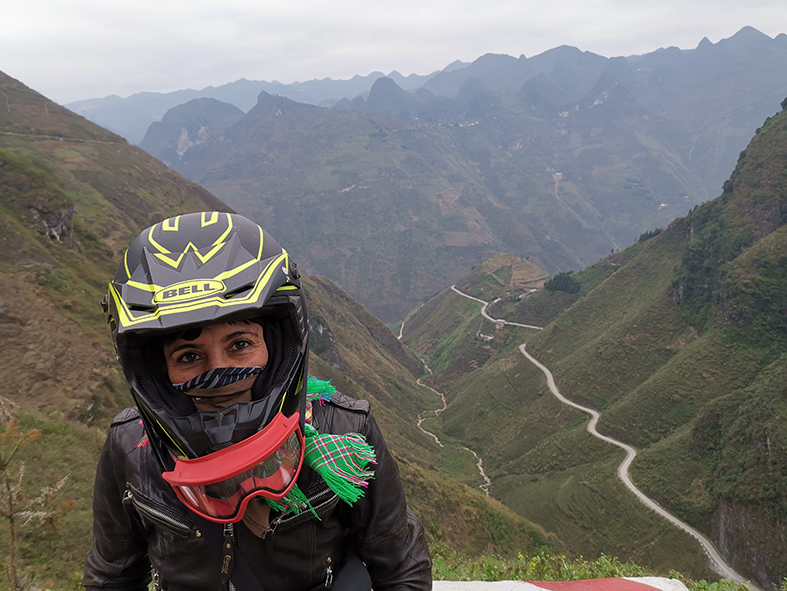
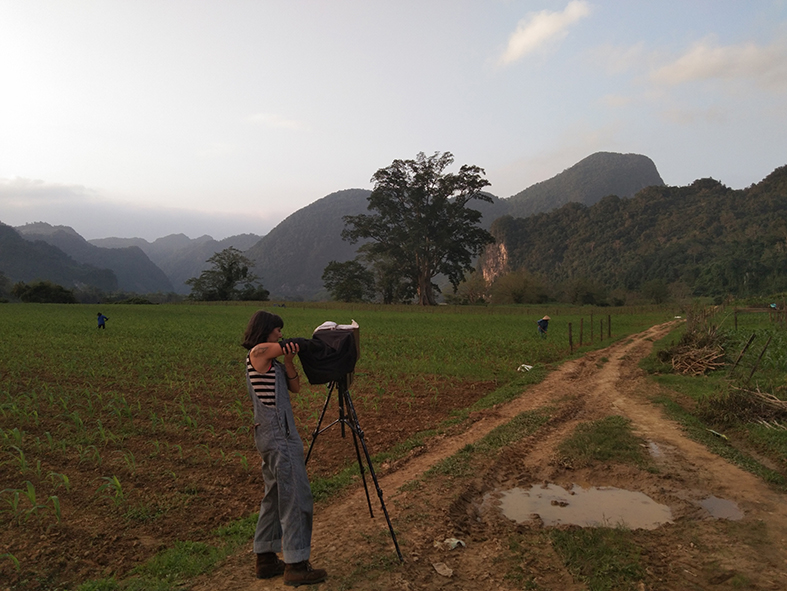
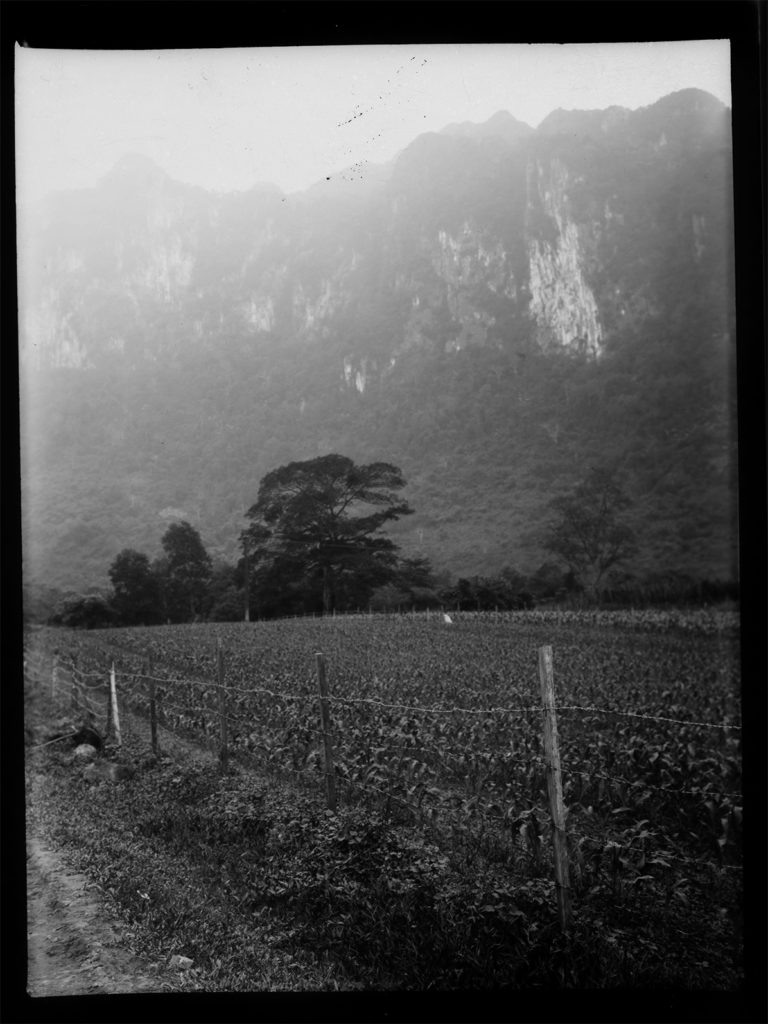
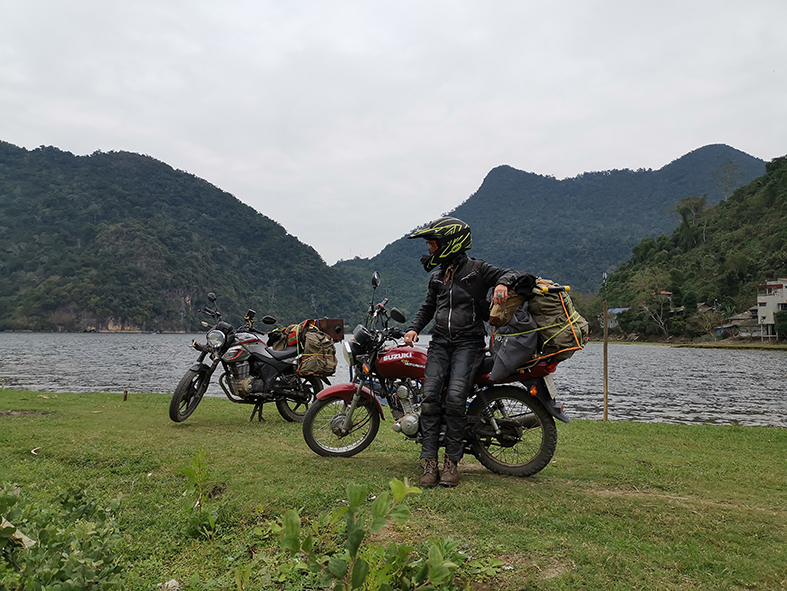
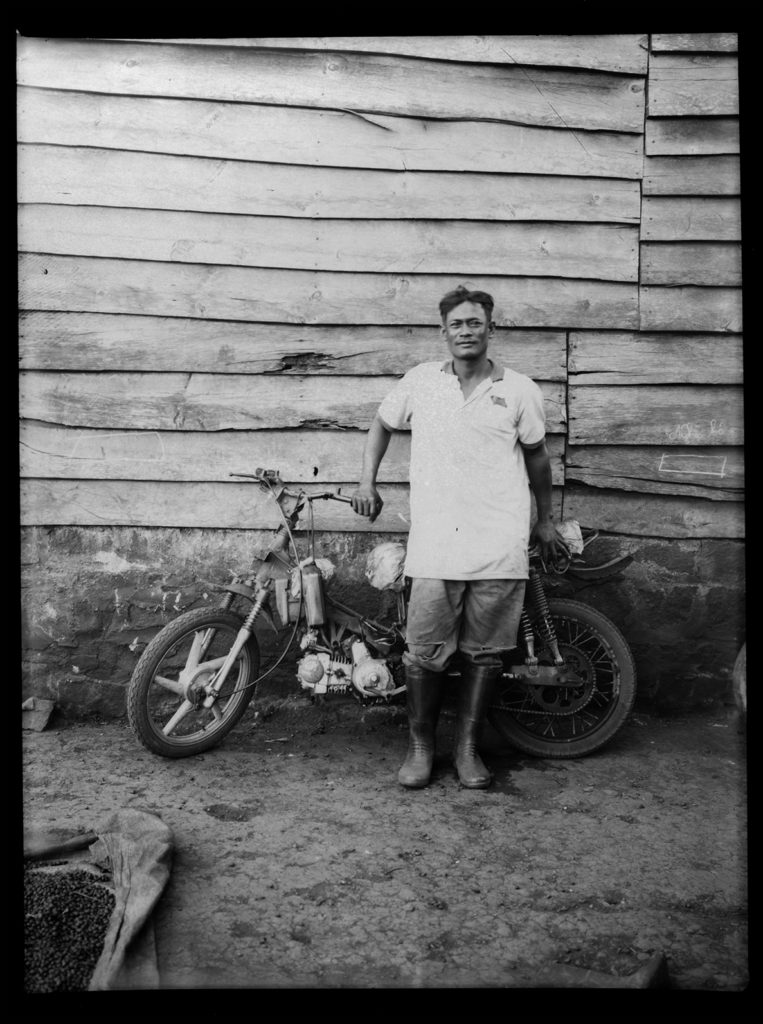
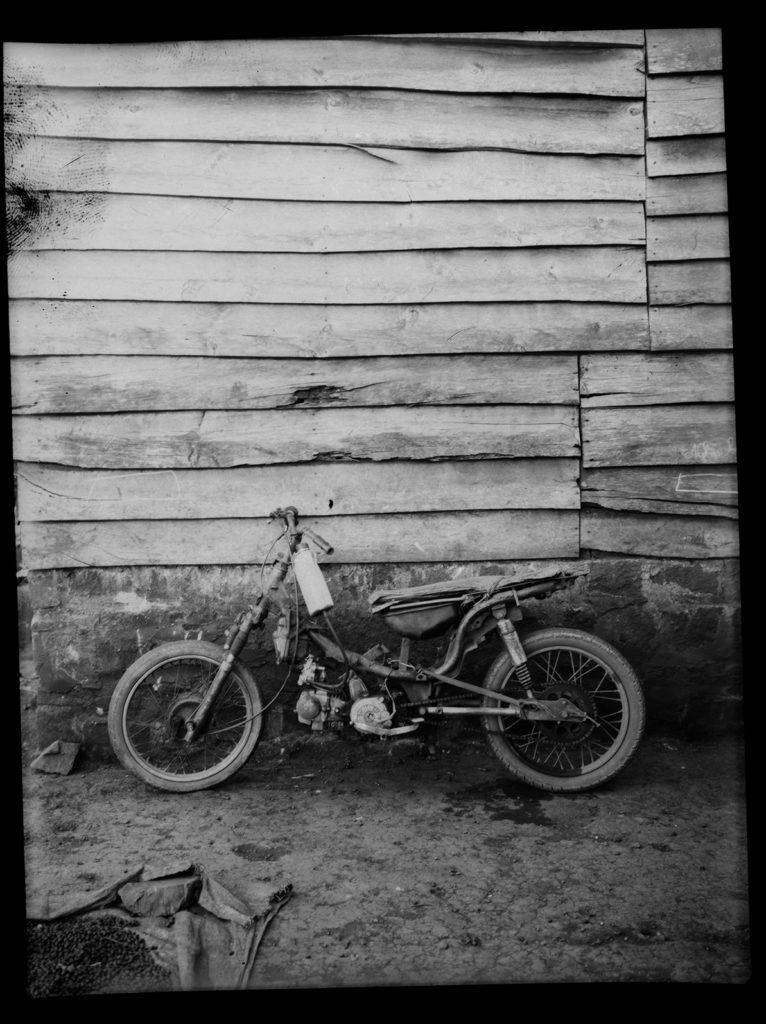
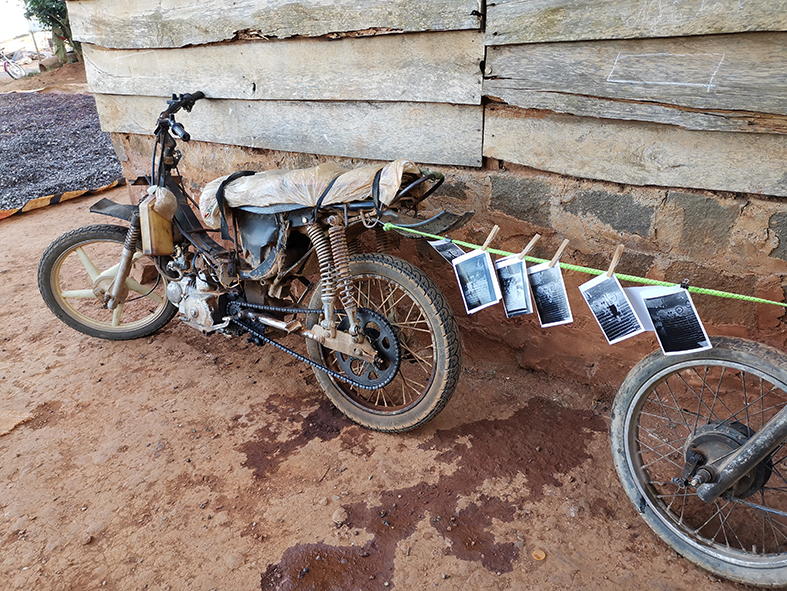
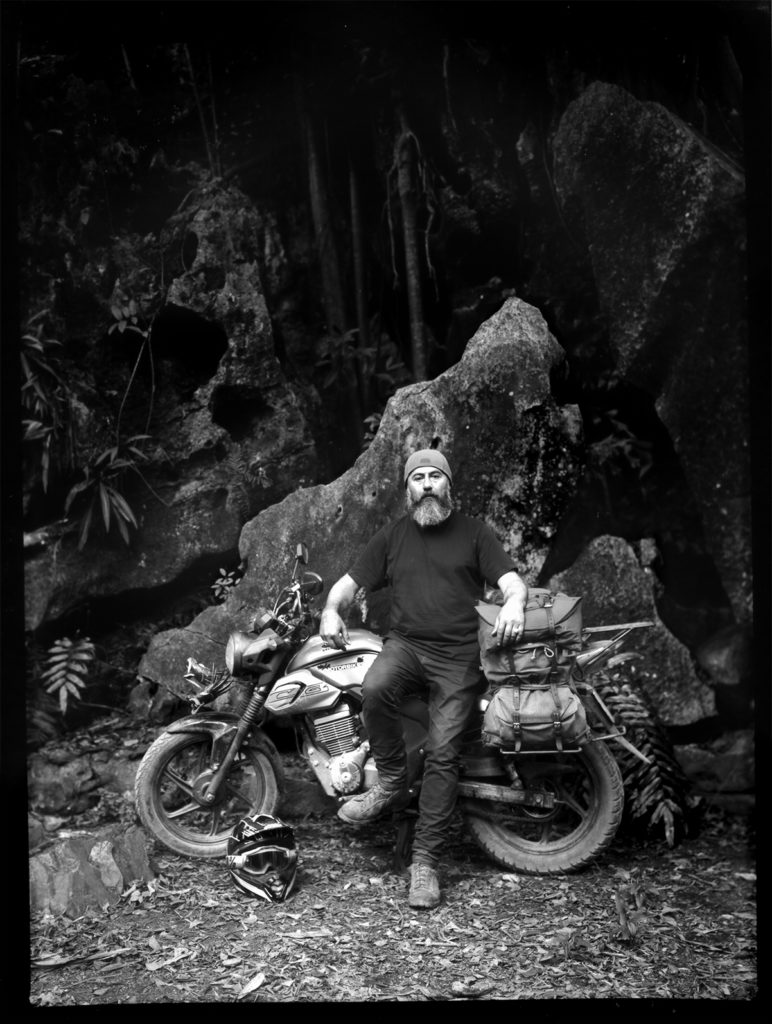


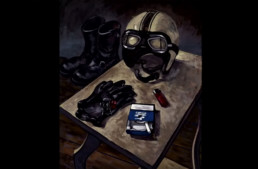

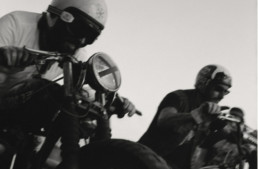
Six (not very communicative) photos of the modified bikes; six snapshots of the authors’ stock bikes. Zero textual detail about the modifications, and no detail photos of them either. Maybe that absence is due to the limitations of the big, crude antique camera? If so, maybe it was a bad idea to bring the thing along. (Certainly it seems a gimmick, and one whose presence is only vaguely explained.)
So what is this article? As journalism, it’s amateurish; as pop anthropology, it’s a toothgrinding failure (“The Jungle Men”? Please). As a motorcycle-oriented contribution to a motorcycle-oriented website, it’s inadequately motorcycle oriented. As an art piece, it’s merely artsy.
If the editors were to raise their game, their contributors might do likewise.
Hi James,
As someone who has also taken an obsolete/difficult camera rig to another country in order to photograph motorcycle culture, I had a unique understanding of what our Spanish friends were up to in Vietnam. After seeing photos of their journey on Instagram, I suggested they submit an article, which is what you see here.
As usual, someone who has never attempted something like this feels entitled to criticize their effort, both the photography and the (second language) writing, because it’s not what you think it should be. That’s bold!
Please submit your own journey with an obsolete technical process in a foreign country whose motorcycle culture intrigues you, and expose yourself to random, ignorant criticism. It’s a very 21st Century experience.
Thank you so much for this beautiful post covering one of my favorite parts of the world!
Most moto-journalists on rides to exotic locales treat the peoples along the way as mere props, evidence [pix or it didnt happen..] of their conquest and bravado.. collateral damage, nothing more. A bit ironic, since these “adventurers” are likely fully supported by slag wagons and expensive, organized tour companies. These two bon vivants rented local rat bikes, and just did it. Bravo!
The post and its photography treated its subject matter with insight and respect, readily apparent to anyone who actually takes the time to take it in.
I’m not familiar with this particular locale or its people, but the Southeast Asian fourth-world hilltribes are spread across the entire region, and often have unique languages, cultures and spiritualities as compared to neighbor villages, much less the countries they inhabit. They are so-called fourth-world since they often have no nationality, and are not recognized by the governments where they have lived for thousands of years. European ethnolinguists have mapped out several hundred, unique languages which exist only in spoken form, which are dying out quickly as successive generations move to cities for manufacturing jobs.
I very much enjoyed this article. As a teenager in the 60’s, riding my Honda 50, then a Yamaha 80, through woods, swamps and back gravel roads, I was fascinated with the pictures in National Geographic of people in far off lands hauling ridiculous loads through rough terrain. The interest has stayed with me to this day. Thank you to the authors for this look into the lives of the Jungle Men, I’m looking forward to a second, more in depth, instalment. If you (the authors) are reading this, please ask the Mechanics what they do to strengthen the gearbox as mentioned and include it in the story. Again, Thank You